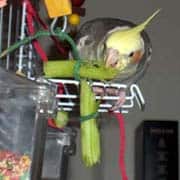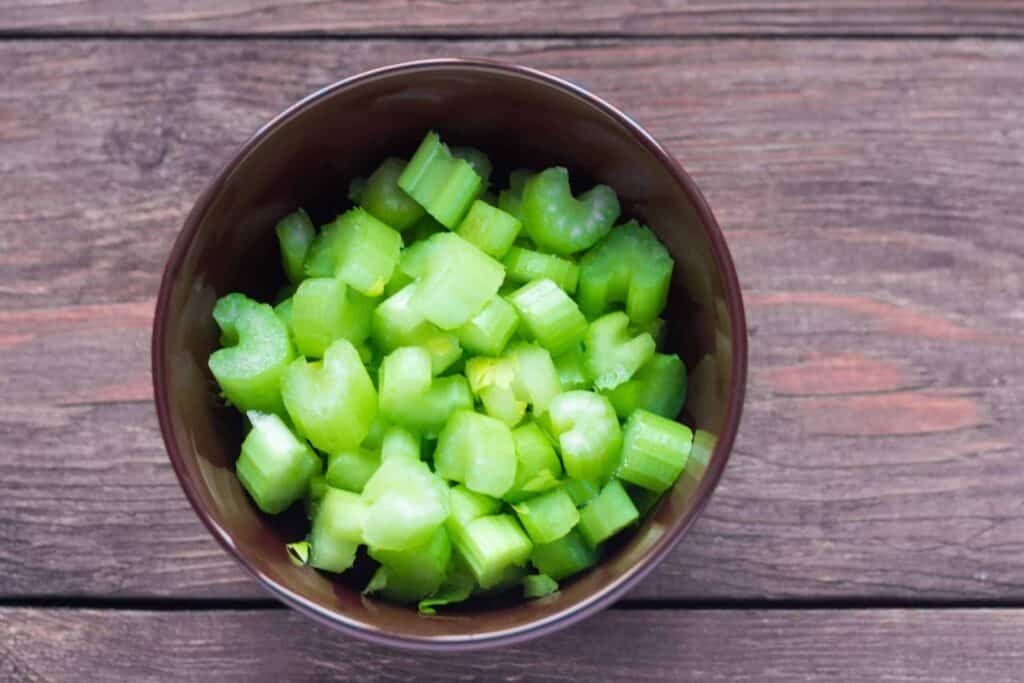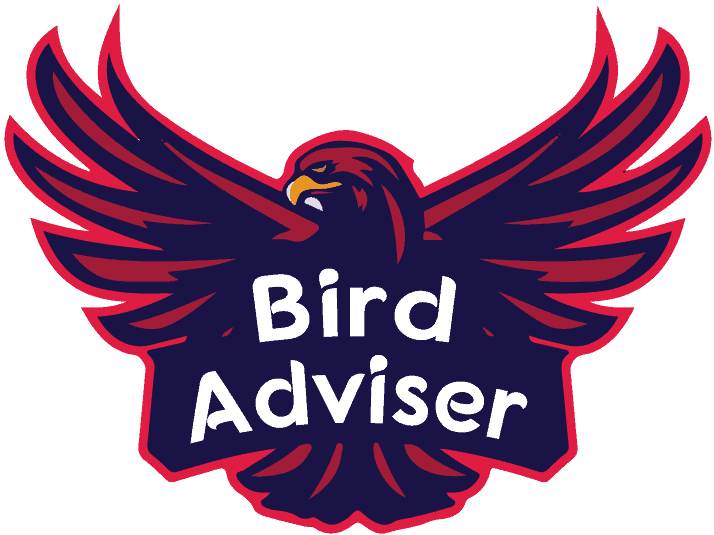Yes, Cockatiels can eat celery, but as celery is a bit higher on fiber, you should not overfeed your cockatiel with celery. While making a food list for your bird, celery will come up in your mind. Can cockatiels eat celery? Yes, celery contains nutrients that can be beneficial for the health of your cockatiel.
This feathery bird loves the juicy taste of celery leaves but makes sure to avoid the health risks that may cause due to excess of feeding celery. So before providing celery, learn all about the benefits of celery along with how to feed them to your cockatiels. In this article, we are going to make everything clear regarding this topic.

Can Cockatiels Eat Celery?
Yes, Cockatiels can eat celery. Cockatiel love to eat celery, they love celery because it is watery and juicy. But make sure you don’t feed your bird with an excessive amount of celery because celery contains, high level of nutrition. So an overdose of celery on your bird can make it sick.
Is Celery Healthy for Cockatiel?
Yes, celery can be very healthy for cockatiel. Celery can be dangerous as well to cockatiels but only in the case if you overfeed your cockatiel with celery. As the celery contains water in their leaves and is high on nutrition than any other food, it will be great for your cockatiel, and it will keep your bird healthy.
With the help of celery, your bird will be hydrated, and there will be fewer chances of any diseases getting near to your bird, but if you feed your bird once a little in a week. Don’t feed your bird again and again with celery, or it will get sick. Moderation is key here.
Celery Nutritional Value
Now let’s have a look at some of the nutritional benefits that are present in celery.
| Nutrients | Value |
| Water | 95.40 g |
| Energy | 16 kcal |
| Protein | 0.68 g |
| Total lipid (fat) | 0.17 g |
| Carbohydrate | 2.97 g |
| Fiber, total dietary | 1.6 g |
| Sugars, total including NLEA | 1.34 g |
| Calcium, Ca | 40 mg |
| Iron, Fe | 0.2 mg |
| Magnesium, Mg | 11 mg |
| Phosphorus, P | 24 mg |
| Potassium, K | 260 mg |
| Sodium, Na | 80 mg |
| Zinc, Zn | 0.13 mg |
| Selenium, Se | 0.4 µg |
| Vitamin C, total ascorbic acid | 3.1 mg |
| Riboflavin | 0.058 mg |
| Niacin | 0.32 mg |
| Vitamin B-6 | 0.074 mg |
| Folate, total | 36 µg |
| Choline, total | 6.1 mg |
Benefits of Celery
1. Vitamin C
Vitamin C helps you with decreasing the chances of heart diseases. Vitamin C makes your immune stronger so that your body can easily defend against infections.
2. Calcium
Calcium is essential for all living things, whether its bird’s animals, or human beings. As we are talking about cockatiel, calcium is necessary for cockatiel for their bones to become strong. Calcium is also vital for cockatiel for reproduction.
How to Feed Celery to a Cockatiel?

- Most importantly, you should make sure that the celery you will feed your cockatiel with must be fresh.
- Then wash the celery properly so that the germs get away.
- Then it would be best if you cut the celery into small size pieces so that the cockatiel can gulp the celery.
- You can feed your bird on a plate, or you can provide them by yourself with the help of your hand.
The central part in feeding the cockatiel celery is that you must take outstanding care of not feeding your bird with a considerable amount of celery. If your bird gets overfed on celery, it might get sick or die too, so you have to be very careful.
How Much Celery Can a Cockatiel Eat?
Although celery is suitable for your bird but keeps in mind to not overfeed your bird with celery, a little piece of celery cleaned up, washed, and deseeded is enough for your bird.
You can feed your bird with celery once a week. Organic celery should be the priority because they contain a good amount of water, nutrition, and calcium in their leaves which is very beneficial for your bird.
Wash the celery deseeds them properly to avoid harmful toxic elements, cut them and let your bird have some great time enjoying this treat.
How Often Can Cockatiels Eat Celery?
The excessive amount of celery can get your cockatiel sick because of the high fiber it has in its leaves. It would be best if you gave your cockatiel celery once a week. Celery once a week will be healthy and beneficial for cockatiel.
Alternatives to Celery for Cockatiels
Cockatiels certainly love to eat all of the fruits you feed to them. Some of the food you can provide your cockatiels other than celery includes fruits like Apples, Bananas, Pears, Grapes, Blueberries, Mangoes, Cucumber, and Papaya.
These fruits should be given in the chopped form. Wash them properly before feeding them and also deseed them. Also, keep in mind and observe which fruit your bird likes and which does not. You will get an idea after you monitor your pet while eating fruit. But be aware to not feed seeds of any of these fruits to your pet because seeds of all the fruits contain cyanide that is a toxic element and can cause severe troubles for the belly and health of your pet.
Conclusion
Cockatiels are beautiful birds. They are also excited to try all kinds of food vegetables and celery is one of them. Celeries are highly nutritional, and they add numerous benefits to the health of your bird. They contain all those elements that are necessary for the nourishment and growth of your bird. Always wash the celeries properly so that germs getaway and your bird stay healthy. Then feed these small pieces of leaves of celery to your bird. They will love this addition of celeries to their diet.
FAQ
1. Is celery safe for cockatiels?
Yes, celery is safe, healthy, and beneficial for your cockatiels, only if you feed them in fewer amounts. If you overfeed your bird with celery, your bird will get sick.
2. Do birds eat celery?
Most birds like to eat celery, fruits, and vegetables.
3. Can cockatiel eat carrot and celery?
Your bird needs a different number of fruits and vegetables for proper nourishment and reproduction. So, the simple answer to this question is yes. But most importantly, anything you feed your bird with must be in low quantity.
Last Updated on March 22, 2023 by Lily Aldrin
